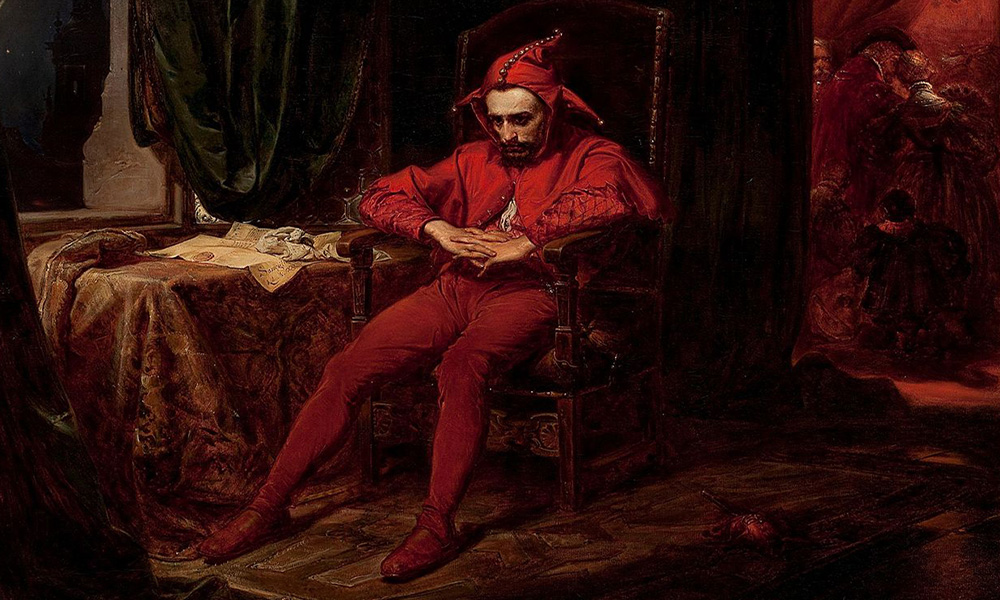In politically turbulent times, satire, by poking fun at the powerful, can dispel tension. But long before the days of Stephen Colbert and Conan O’Brien, political satire, at least in Europe, was the domain of a rather different type of character: court jesters.
Dorinda Outram, a professor emerita of history at the University of Rochester, invites buffs and satire enthusiasts alike to dive deep into the world of 18th century court jesters. Her book, Four Fools in the Age of Reason: Laughter, Cruelty, and Power in Early Modern Germany (The University of Virginia Press, 2019), is out in April, and is the first study to compile the lives of four famous jesters in post-Renaissance Germany.
If you’re picturing a grinning clown in purple and yellow pajamas with a floppy belled hat, Outram begs you to reconsider. “People tend to think about Shakespeare’s fools,” she says. “I wanted to talk about a different sort of fool. They weren’t very grand. These fools slept in the straw with the dogs.”
Uncouth, dirty, and devoid of all status, German court fools had little in common with the endearing and sagacious fool in Shakespeare’s Twelfth Night. And unlike their French and English counterparts, who died out by the end of the 16th century, the German fool was an active member of the court well into the 18th century.
Their primary purpose was to keep political leaders grounded by entertaining the court aristocracy with crude jokes and performances. By making fun of the monarch—within reason—fools were supposed to keep the aristocracy distracted from the monarch’s political weaknesses, and therefore less likely to engage in social-climbing and potential power-grabbing.
“Fools were close enough to rulers to speak to power,” explains Outram, “but at the same time were despised and treated as servants by their rulers. That contradiction interested me.”
While researching, Outram admits she was taken aback by some of the cruel and humiliating pranks the fools endured, including electric shock experiments and public nudity. Barbaric though this may seem from a 21st-century perspective, Outram encourages readers to see the contemporary relevance of fooling.
Although fools and modern late-night hosts are, of course, not true equivalents—given that the former was degraded and poor, while the latter is respected and usually rich—they share an important function. “We need people who speak truth to power,” she says.




